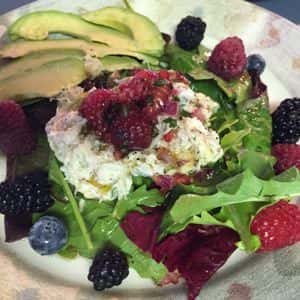
How should you take your vitamins? Most of the time, you don’t get much guidance. Maybe you take them with meals, figuring that food contains vitamins too. Or perhaps you try to take them without food, on the theory that you won’t have anything in your stomach to interfere with maximal absorption. One reader wonders about maximizing vitamin D absorption.
How Can You Boost Vitamin D Absorption?
Q. My doctor says that I need to take vitamin D3 with fat such as whole milk or avocado so that the body can properly absorb the vitamin. Apparently, vitamin D is best absorbed with a moderate amount of fat, compared to no fat or lots of fat.
A. Vitamin D is a fat-soluble vitamin. Nutritionists have long advised people to take such nutrients with a meal that contains fat to enhance absorption.
Fat and Vitamin D Absorption:
Vitamin D is a bit more complicated, though. Factors that might influence absorption include the form of the vitamin (D2 compared to D3) as well as the type of meal and the amount of fat in the meal. A review of the research found, however, that none of these matter very much (Borel, Caillaud & Cano, Critical Reviews in Food Science and Nutrition, vol. 15, no. 9, 2015).
One study that tested the amount of fat in the meal compared vitamin D absorption when it is taken with a high fat meal, a low fat meal or no meal (Dawson-Hughes et al, Journal of Bone and Mineral Research, Aug. 2013). Absorption was highest when the supplement was taken with a low fat meal.
To learn more about this crucial nutrient, you may wish to read our Guide to Vitamin D Deficiency. In it, you’ll learn why vitamin D is so important and which supplements are best.

